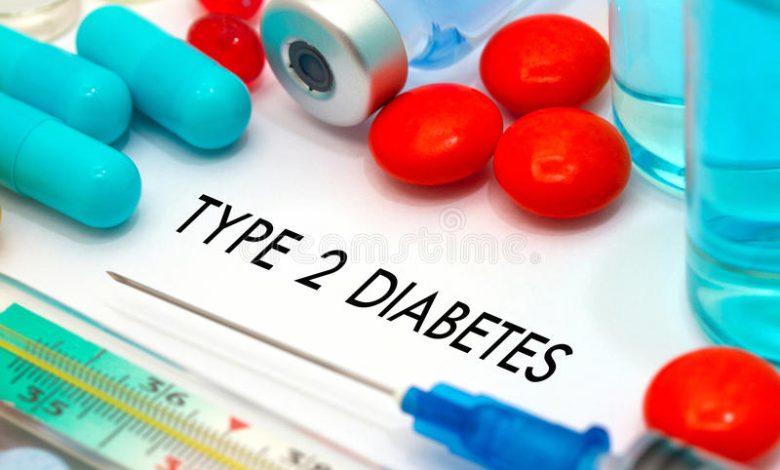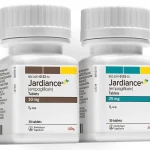The 4 New Pills For Type 2 Diabetes

Type 2 diabetes is a chronic metabolic disorder that affects the way the body processes glucose (sugar). It is the most common type of diabetes and is often associated with obesity and a sedentary lifestyle.
In type 2 diabetes, the body becomes resistant to insulin, a hormone that regulates the amount of glucose in the blood. As a result, glucose builds up in the blood, leading to high blood sugar levels. Over time, high blood sugar levels can damage various organs and tissues in the body, leading to complications such as heart disease, stroke, kidney disease, nerve damage, and vision loss.
Type 2 diabetes is a very common disease worldwide. According to the International Diabetes Federation, in 2021, approximately 537 million adults aged 20-79 years had diabetes globally, and 90% of these cases were type 2 diabetes. The number of people with diabetes is expected to continue to rise in the coming years.
In the United States, the Centers for Disease Control and Prevention (CDC) estimates that approximately 34.2 million people, or 10.5% of the population, have diabetes, and about 90-95% of these cases are type 2 diabetes. Type 2 diabetes is more common in adults, but it can also occur in children and adolescents, particularly those who are overweight or obese.
The incidence of type 2 diabetes is also influenced by various risk factors, such as age, family history of diabetes, obesity, physical inactivity, and certain ethnic and racial backgrounds. Some ethnic groups, including African Americans, Hispanic/Latino Americans, American Indians, and Asian Americans, are at higher risk for developing type 2 diabetes. In this article, we shall be taking an in-depth look at the new pills for type 2 diabetes.
The 4 New Pill For Type 2 Diabetes
There are several new medications that have been approved by the FDA for the treatment of type 2 diabetes in recent years. These medications work in different ways to help control blood sugar levels and may be used alone or in combination with other medications.
The 4 new pills for type 2 diabetes are bexagliflozin, empagliflozin, canagliflozin, and dapagliflozin which are all SGLT2 inhibitors, a class of medications used to treat type 2 diabetes. These medications work by blocking the reabsorption of glucose by the kidneys, leading to increased urinary glucose excretion and lower blood sugar levels.
Here are some details about each of these medications:
1. Bexagliflozin: This medication is a once-daily tablet approved for use in adults with type 2 diabetes. It is taken orally and works by inhibiting SGLT2, a protein responsible for the reabsorption of glucose in the kidneys. By blocking the reabsorption of glucose, bexagliflozin helps to lower blood sugar levels. Common side effects may include urinary tract infections, genital mycotic infections, and increased urination.
2. Empagliflozin: This medication is also a once-daily tablet approved for use in adults with type 2 diabetes. It works by blocking SGLT2, leading to increased urinary glucose excretion and lower blood sugar levels. In addition to its glucose-lowering effects, empagliflozin has been shown to have cardiovascular benefits in patients with type 2 diabetes and established cardiovascular disease. Common side effects may include urinary tract infections, genital mycotic infections, and increased urination.
3. Canagliflozin: This medication is another once-daily tablet approved for use in adults with type 2 diabetes. Like other SGLT2 inhibitors, canagliflozin works by blocking the reabsorption of glucose in the kidneys, leading to lower blood sugar levels. In addition to its glucose-lowering effects, canagliflozin has also been shown to reduce the risk of major cardiovascular events in patients with type 2 diabetes and established cardiovascular disease. Common side effects may include urinary tract infections, genital mycotic infections, and increased urination.
4. Dapagliflozin: This medication is a once-daily tablet approved for use in adults with type 2 diabetes. It works by blocking SGLT2, leading to increased urinary glucose excretion and lower blood sugar levels. Like other SGLT2 inhibitors, dapagliflozin has also been shown to have cardiovascular benefits in patients with type 2 diabetes and established cardiovascular disease. Common side effects may include urinary tract infections, genital mycotic infections, and increased urination.
It’s important to note that while these medications are generally well-tolerated, they may not be appropriate for everyone with type 2 diabetes. Healthcare providers can help determine the most appropriate treatment for each individual based on their unique health status and medication history.
Is there a new drug for type 2 diabetes that helps with weight loss?
Yes, there are several new drugs for type 2 diabetes that have been approved by the FDA that can help with weight loss. These medications work by different mechanisms to help patients with type 2 diabetes control their blood sugar levels and lose weight.
One class of medications that can help with weight loss in patients with type 2 diabetes are GLP-1 receptor agonists. These medications work by stimulating insulin secretion and reducing the release of glucagon, a hormone that increases blood sugar levels. In addition to their glucose-lowering effects, GLP-1 receptor agonists can also help with weight loss by suppressing appetite and promoting feelings of fullness. Examples of GLP-1 receptor agonists include liraglutide, semaglutide, and exenatide.
Another class of medications that can help with weight loss in patients with type 2 diabetes are SGLT2 inhibitors. These medications work by blocking the reabsorption of glucose by the kidneys, leading to increased urinary glucose excretion and lower blood sugar levels. In addition to their glucose-lowering effects, SGLT2 inhibitors can also help with weight loss by reducing calorie intake and increasing fat burning. Examples of SGLT2 inhibitors include empagliflozin, canagliflozin, and dapagliflozin.
In 2022, the U.S. Food and Drug Administration approved Mounjaro (tirzepatide) injection an Ozempic alternative to improve blood sugar control in adults with type 2 diabetes, as an addition to diet and exercise. Mounjaro was effective at improving blood sugar and was more effective than the other diabetes therapies with which it was compared in clinical studies.
It’s important to note that while these medications can be effective for weight loss in patients with type 2 diabetes, they may not be appropriate for everyone. Healthcare providers can help determine the most appropriate treatment for each individual based on their unique health status, medication history, and weight loss goals. Additionally, these medications should always be used in combination with lifestyle modifications such as diet and exercise for the best results.





